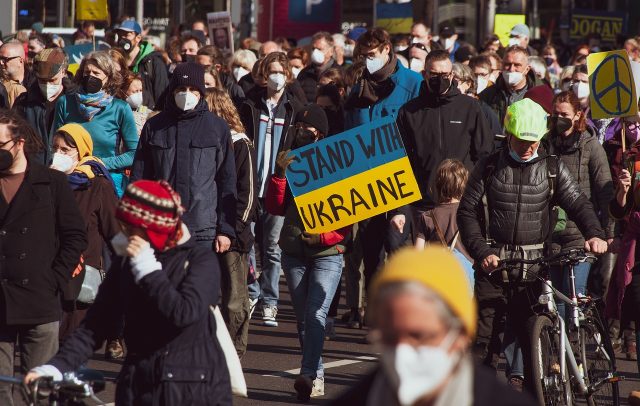
The first G7 summit chaired by Italian Prime Minister Giorgia Meloni, leader of the European conservatives, was held. The main topic was Ukraine and everything related to it: aid, sanctions against Russia, and a feasibility study on how to shift the interests of the economic reserves that Moscow holds in Europe, North America, and Japan. A very substantial treasure trove approaching $300 billion.
Meloni’s physical presence in Kiev, the Ukrainian capital, during the first summit was particularly significant to demonstrate support in every aspect to Ukrainian President Volodymyr Zelensky, who was also present. It was a way to reaffirm a simple yet increasingly important concept: Europe and the West are and will remain close to Ukraine.
Also present were European Commission President Ursula Von der Leyen, Belgian Prime Minister Alexander de Croo, currently President of the EU Council, and Canadian Prime Minister Justin Trudeau, while US President Joe Biden and other leaders participated remotely via video conference. The only exception was French President Emmanuel Macron; his Foreign Minister, Stéphane Séjourné, attended in his place.
“The security of Ukraine and the security of Europe coincide. In Ukraine, we are also fighting for our freedom,” Meloni affirmed, emphasizing a firm defense. These public statements carry significant weight and complement those made during a private bilateral meeting, during which the Italian president also presented a medal crafted by the Polygraph and the State Mint to commemorate two years of Ukrainian resistance. These motivations underpin the “most comprehensive and important security agreement signed by Italy with a non-NATO country.” It is a decade-long agreement centered on objectives such as cooperation in the defense industry, strengthening information exchange on cyber and intelligence matters, and providing aid during reconstruction.
However, the most crucial and meaningful words concern the commitment to collaborate immediately and intensively in the event of a new attack on Ukraine. “This necessarily presupposes military support because confusing the much-touted word ‘peace’ with ‘surrender’ is a hypocritical approach that we will never share,” declared the G7 president unequivocally. This stance is supported by the fact that the Italian government has enacted the eighth package of military aid to Ukraine. European Commission President Von der Leyen echoed this sentiment, assuring that there will be no reduction in military and economic aid to Ukraine. An additional €20 billion will be allocated, along with a €5 billion fund for purchasing armaments. Additionally, the European defense industry has increased ammunition production by 40%, while over 60,000 Ukrainian soldiers continue to be trained on European soil. Conservative British Prime Minister Rishi Sunak allocated €287 million to aid Ukraine with ammunition supplies during the same period.
Among the discussions, there was also a mention of Alexei Navalny, a political opponent of Russian President Vladimir Putin, who died under mysterious circumstances on February 16 in the high-security prison of Kharp in Siberia. During the meeting, clarification on “fully explaining the circumstances of his death” was requested. In this regard, it is ensured by all present that Russian assets deposited in their countries will remain frozen until Russia pays for all the damages caused by the war in Ukraine. An idea that, however, needs to be structured in a concrete manner, avoiding violation of the regulations of private financial institutions, international law, and the rules of individual states.
In conclusion, it can be said that the Italian G7 will be guided by events in Ukraine. Form follows substance, and starting from Kiev carries a clear significance. In fact, a declaration was signed by Meloni with representatives of the other countries (United States, United Kingdom, Japan, Germany, France, and Canada). Now all eyes are on the developments that will occur before June 13, the date when the next summit will begin in Puglia.



 Subscribe
Subscribe